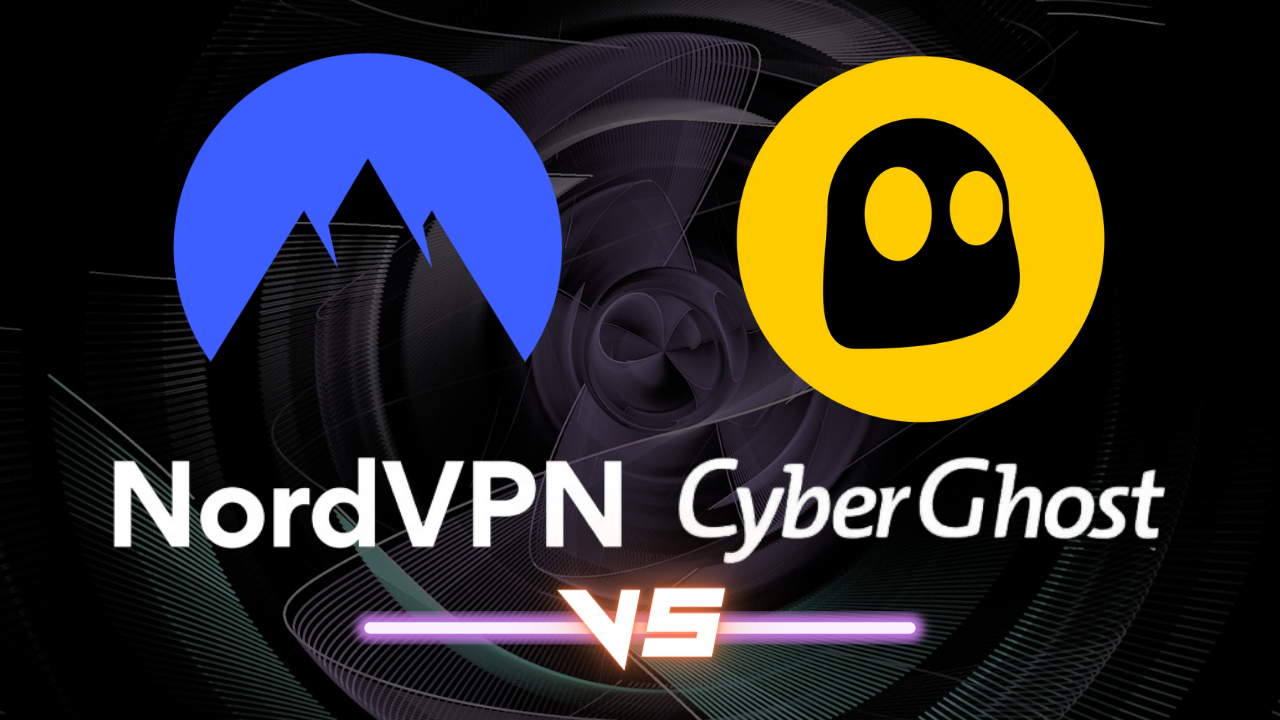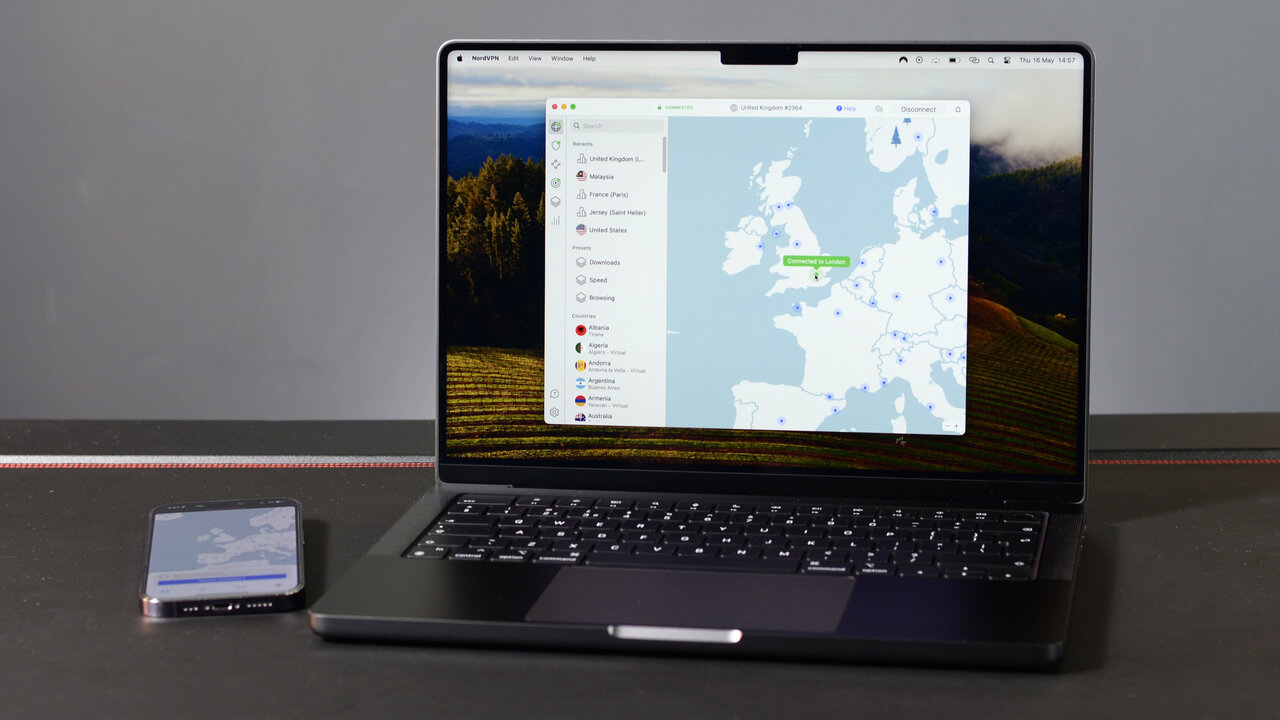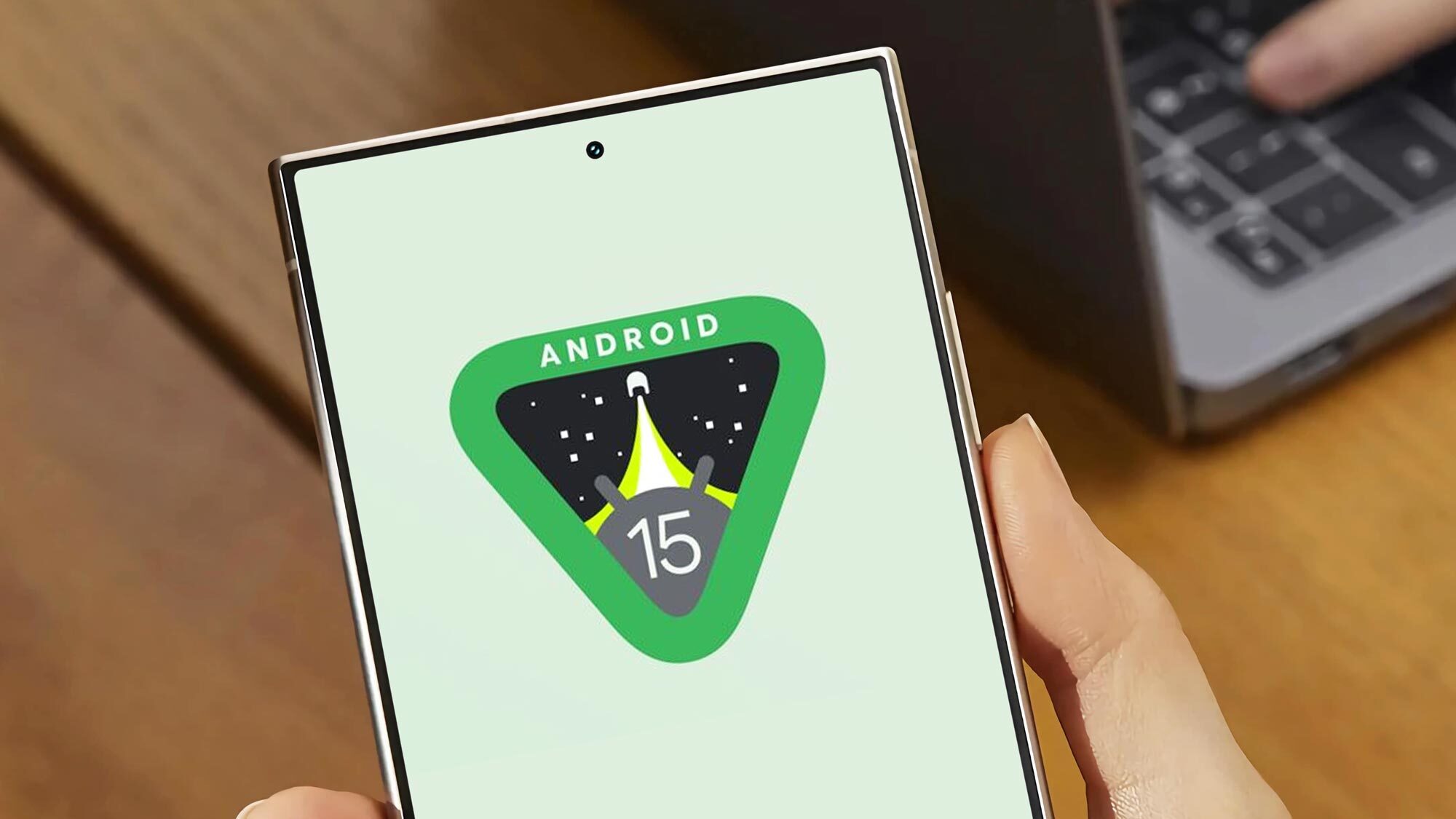NordVPN vs CyberGhost: which provider is best?
Comparing the security, features, and value of two high-quality VPNs

Using a virtual private network, or a VPN, is an easy way to stay private and secure on the internet, especially when on public Wi-Fi networks. However, that's not the only reason we're seeing a massive spike in their popularity – VPNs can also help you access region-blocked content no matter where you are.
NordVPN tops our guide on the best VPNs, and in our NordVPN review we gave it an excellent 4½-star rating, while CyberGhost VPN received a 4-star rating. However, there are more than just a few areas where the underdog puts up a serious fight against the industry leader.
Keep reading my detailed NordVPN vs CyberGhost comparison, where I'll compare two excellent VPNs across core aspects, including security, privacy, performance, streaming, and, of course, value for money.
NordVPN vs CyberGhost at a glance
| Header Cell - Column 0 | NordVPN | CyberGhost VPN |
|---|---|---|
| Number of servers: | 6,000+ | 11,700+ |
| Server countries: | 140 locations in 110+ countries | 126 locations in 100 countries |
| Maximum simultaneous connections: | 10 | 7 |
| Money back guarantee: | 30 days | 45 days |
| Lowest monthly cost: | From $3.50 (varies) | From $2.03 (varies) |
NordVPN vs CyberGhost: Specs
As you can see in the spec sheet above, CyberGhost, with over 11,700 servers, blows NordVPN out of the water when it comes to server count, offering almost twice as many servers as Nord's 6,000.
However, NordVPN offers servers in more locations (140 locations in 110+ countries) than CyberGhost (126 locations in 100 countries), although the difference is not that huge.
All in all, though, while CyberGhost VPN does offer a larger server network, I didn't have any trouble finding a speedy server irrespective of my location with NordVPN, either – and 6,000 servers is still more than much of the competition.
NordVPN is superior to CyberGhost when it comes to simultaneous connections. Where Nord offers the industry-standard 10 connections, CyberGhost allows you to connect up to 7 devices only.
Sign up to get the BEST of Tom's Guide direct to your inbox.
Get instant access to breaking news, the hottest reviews, great deals and helpful tips.
What's even more interesting is that while Nord limits you by the number of logins (i.e. you can log in with 10 devices at a time), CyberGhost limits by installations instead, meaning you'll have to remove a registered device to be able to add another. This is really quite annoying, and I'd like to see this policy changed.
However, where both of these services are tied is their compatibility with various platforms. Both NordVPN and CyberGhost come with good apps for Windows, Mac, Android, iOS, and Linux, as well as Amazon Fire TV. What's more, they also offer Smart DNS so that you can use the VPN on gaming consoles and smart TVs.
NordVPN vs CyberGhost: Plans, pricing and trials
While NordVPN offers excellent value for money, CyberGhost is admittedly the better choice if you're looking for a cheap VPN. Nord starts at around $3.50 per month for its most basic plan on a 2-year subscription (less if you find a good deal), while CyberGhost costs between $2.03 and $2.19 per month if you choose its 2-year plan.
Even better, both of these services offer extra months for free. Nord is slightly better in this case, though, since it offers 3 months extra on all of its plans, irrespective of whether you go for a 1- or 2-year commitment. CyberGhost, on the other hand, doesn't offer a yearly plan, plus it reserves the extra 2 months of free protection for its 2-year plan only.
Interestingly, both Nord (the Basic plan) and CyberGhost have the same exact pricing ($12.99) as far as their monthly subscriptions are concerned. It's only when you crank up the subscription's length that CyberGhost emerges as a fairly cheap NordVPN alternative.
It's worth discussing the three plans Nord offers. The Basic plan, as the name suggests, gets you Nord's speedy and secure VPN, and some additional features found within that app. Upgrade to the Plus plan to get built-in malware protection and ad-blocking, as well as Nord's password manager and a data breach scanner. This is arguably the best NordVPN plan. Lastly, the Ultimate plan further amps up your digital security by offering encrypted cloud storage and cyber insurance.
CyberGhost offers a couple of (paid) add-ons as well. You can get the CyberGhost security suite for Windows with built-in antivirus and security updater for just $1 per month. Next, a dedicated IP address is available at $2.50 per month.
While CyberGhost is admittedly cheaper than NordVPN, and therefore a better pick for bargain hunters, Nord gives you the option to get an all-in-one security suite (better than CyberGhost's), and that too, at budget-friendly prices.
If you need a really long refund period to be able to try out the tool risk-free before committing, CyberGhost is a more tempting pick. It knocks it out of the park with an industry-leading 45-day money-back guarantee, as opposed to Nord's 30-day money-back guarantee, which should still be more than enough for a thorough trial, by the way.
NordVPN vs CyberGhost: Security and privacy
NordVPN is one of the most secure VPNs available. It offers built-in malware protection and ad-blocking, as well as a password manager, a data breach scanner, secure cloud storage, and even cyber insurance.
While CyberGhost does not match up to NordVPN in this regard, it certainly isn't poor as far as security is concerned. It offers an automatic kill switch, DNS leak protection, and a content blocker to keep malicious ads and trackers at bay.
However, it's worth noting that CyberGhost VPN removed its password manager due to a lack of interest from users. Plus, its Windows app doesn't send notifications when it connects or disconnects.
Both NordVPN and CyberGhost offer industry-standard AES-256 encryption and have had their no-logs policies independently audited by the industry-leading audit firm Deloitte. Furthermore, their no-logs policies are also clear-cut and easy to understand, which is always a good sign.
However, NordVPN packs a few extra features on the privacy front, thanks to features such as Double VPN and Onion over VPN. Double VPN, which is available on Windows, Mac, and Android, encrypts your data twice by sending it through two servers instead of one. Onion over VPN routes your connection over the encrypted Tor network, sacrificing speed for absolute privacy.
CyberGhost, on the other hand, impresses with its bug bounty program, wherein it pays experts up to $1,250 if they can find and report any vulnerabilities in the service.
Overall, NordVPN wins out here.

NordVPN vs CyberGhost: Performance
After using a number of different speed testing websites and services, and conducting multiple rounds of testing, we've found that NordVPN is one of the fastest VPN on the market right now thanks to peak speeds of over 950 Mbps. This is when using its proprietary and default NordLynx protocol.
CyberGhost, on the other hand, delivers very respectable speeds of around 760 Mbps. While it's certainly not as rapid as Nord, it's still more than enough for everything you'll need it for, whether that's streaming, gaming, or torrenting.
It's a different story when using OpenVPN, though, where CyberGhost, with speeds of 360 Mbps, is faster than NordVPN's 110 Mbps.
It's also worth noting that if you're running a regular domestic connection of around 100 Mbps, it will hardly make a difference whether you use NordVPN or CyberGhost.
NordVPN vs CyberGhost: Streaming
NordVPN has the upper hand here. As the best Netflix VPN in our testing, Nord is able to unblocks just about every Netflix location, and it's equally good when it comes to getting around geo-restrictions on other streaming sites, such as Amazon Prime Video, Disney Plus, BBC iPlayer, 9Now, 10 play, and loads more. Plus, its class-leading speeds ensure you do not encounter any buffering whatsoever.
CyberGhost is not too far off NordVPN, effortlessly unblocking all test Netflix libraries and everything else in our latest tests. However, it doesn't perform a clean sweep of streaming sites, as it failed to unblock some smaller streaming sites like the Aussie 10 Play. Still, with dedicated streaming servers, excellent speeds, and the ability to unblock a wide range of content, CyberGhost is a solid streaming VPN.

NordVPN vs CyberGhost: Torrenting
NordVPN doesn't openly advertise its ability for torrenting, but it's in the running as the best torrenting VPN. It offers hundreds of torrent-friendly servers worldwide, including the US and UK. While a handy P2P server list on its Windows client is certainly impressive, NordVPN's standout torrenting feature is its ability to automatically reroute you to a torrent-friendly server if it detects P2P traffic.
This comes in clutch, and combined with Nord's no-logging policy, excellent DNS protection, and security features such as Double VPN and Onion over VPN, ensures that you enjoy rock-solid protection whenever you torrent.
CyberGhost, however, is just as good for torrenting, if not better. While not every one of its servers is optimized for P2P traffic, you'll find that it offers 70 P2P-friendly countries, which is more than what NordVPN offers. It even has a big 'Torrent Anonymously' button to simplify the whole process.
Plus, just like for streaming and gaming, CyberGhost has a "For Torrenting" server list, too, allowing you to seamlessly find a suitable server for torrenting near your location. What really impressed me, though, is its ability to automatically connect to your preferred CyberGhost server whenever you launch your torrent client.
NordVPN vs CyberGhost: Mobile apps
Both NordVPN and CyberGhost VPN offer some of the best Android VPN apps on the market. NordVPN comes with excellent encryption, split tunneling to disable the VPN for specific apps, and bonus security features such as Double VPN and Onion over VPN. Protocol options include NordVPN's NordLynx and OpenVPN TCP or UDP.
CyberGhost's Android app is easy to use and doesn't skimp on features, either. It includes the ability to use a random port when connecting to the VPN, which will help you bypass VPN blocks. There's also split tunneling and a content blocker for malware, ads, and trackers – similar to NordVPN – and protocol support includes OpenVPN and WireGuard.
While iPhone VPN apps will never be as powerful as their Android counterparts, because of Apple's limitations, NordVPN does an excellent job by offering a wider selection of protocols (NordLynx, IKEv2, and OpenVPN) than CyberGhost (no OpenVPN).
Additionally, NordVPN's iOS version offers dark web monitoring, too, whereas the best you get with CyberGhost is the ability to set up the app to automatically connect when you access insecure or specific networks – which is also available with NordVPN, by the way. However, CyberGhost's mobile VPN apps come with a 7-day trial, allowing you to try them out absolutely risk-free before committing.
Another minor downside to NordVPN's mobile apps is the design. They come with the same map-based interface as their desktop brethren, which works perfectly well on the larger screens of desktops and tablets, but feels a little cramped and tricky to use on the smaller screens of smartphones.

NordVPN vs CyberGhost: Support
Both NordVPN and CyberGhost are good when it comes to addressing customer queries. Much of this is largely because both of them offer 24/7 live chat support from real human agents, which is much likely to be your first and only port of call.
If you want to help yourself, you'll be happy to find out that NordVPN comes with an in-depth knowledge base with a lot of helpful articles. Even better, if you can't find what you need, a neat little chatbot will help you out. There's also email support if you don't mind waiting for a few hours.
CyberGhost is much the same, with email support and a good knowledge base that has plenty of guides for different operating systems and lots of common issues people have. Like Nord, CyberGhost's knowledge base also has a search box where you can hunt for specific words. However, I found this to be less intuitive than Nord's.
Additionally, things are worded slightly strangely on CyberGhost’s official site, which is likely because a lot of CyberGhost employees are Romanian who speak English as a second language. Although nothing major, a few shortfalls here and there mean NordVPN takes this one.
NordVPN vs CyberGhost: Which is better?
To wrap things up, NordVPN is currently the best VPN service overall, and it holds the edge over CyberGhost on some very important parameters, including connection speeds, unblocking capabilities, and all-around security.
However, CyberGhost is significantly cheaper (although monthly VPN subscriptions cost the same), has a wider server network, and is slightly better for torrenting than NordVPN.
The right VPN for you ultimately depends on what features you want, your intended use cases, and your budget. The best part, though, is that you can try either of these world-class VPNs without putting any money on the line. NordVPN comes with a 30-day money-back guarantee, and CyberGhost has an industry-best 45 days.
Our NordVPN promo codes can help you save on top-notch security products. Use our codes to get discounts on NordVPN antivirus, VPN, and other protection tools.
How we test VPNs
Testing VPN is a complex process, and takes up a significant portion of the VPN team's time here at Tom's Guide. We've got a full explainer on how we test VPNs, but here's a quick overview if you're in a rush.
We always get hands-on with the VPNs we review, and never take marketing claims at face value. We test on Windows, Mac, Android, iOS, and Linux, and dig into the settings and code to find any faults that could put you at risk.
We also test connection speeds a minimum of 120 times per provider, and test the streaming performance with dozens of sites including Netflix, Amazon Prime Video, Disney+, BBC iPlayer, Peacock, 10 Play, and many more.
We make sure the support system is useful too, and then we take into account any additional features outside the core VPN product that might be of interest.
Disclaimer
We test and review VPN services in the context of legal recreational uses. For example:
1. Accessing a service from another country (subject to the terms and conditions of that service).
2. Protecting your online security and strengthening your online privacy when abroad.
We do not support or condone the illegal or malicious use of VPN services. Consuming pirated content that is paid-for is neither endorsed nor approved by Future Publishing.

Krishi is a VPN writer covering buying guides, how-to's, and other cybersecurity content here at Tom's Guide. His expertise lies in reviewing products and software, from VPNs, online browsers, and antivirus solutions to smartphones and laptops. As a tech fanatic, Krishi also loves writing about the latest happenings in the world of cybersecurity, AI, and software.
